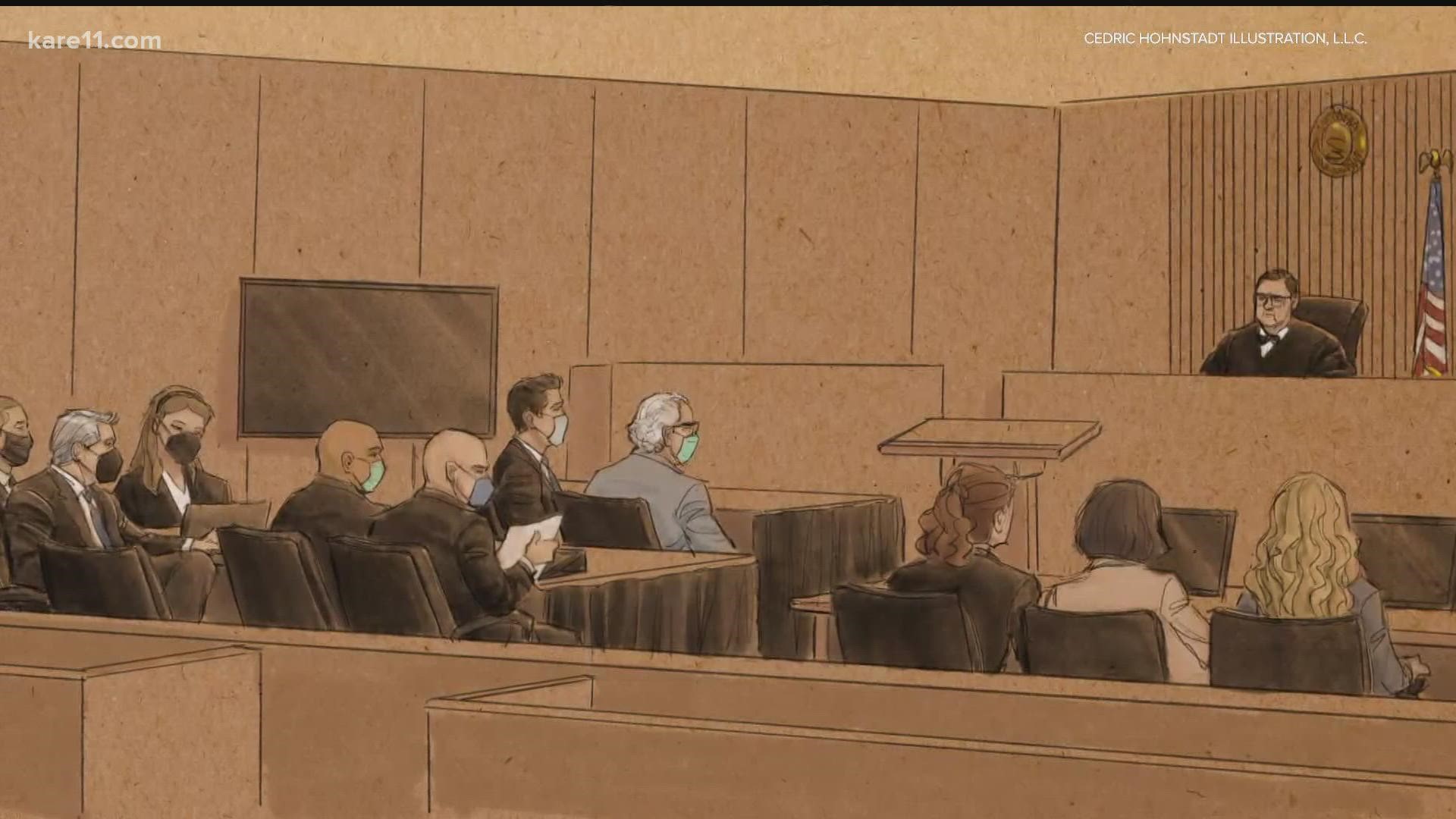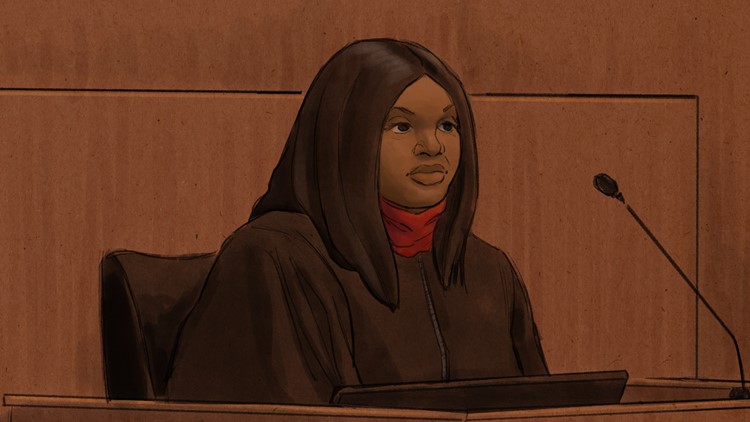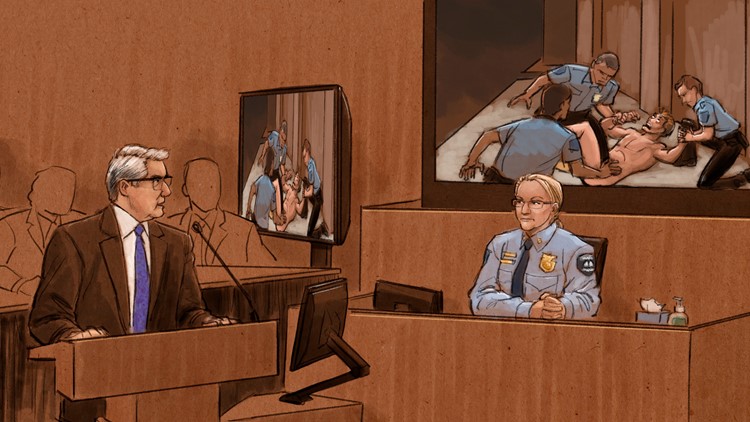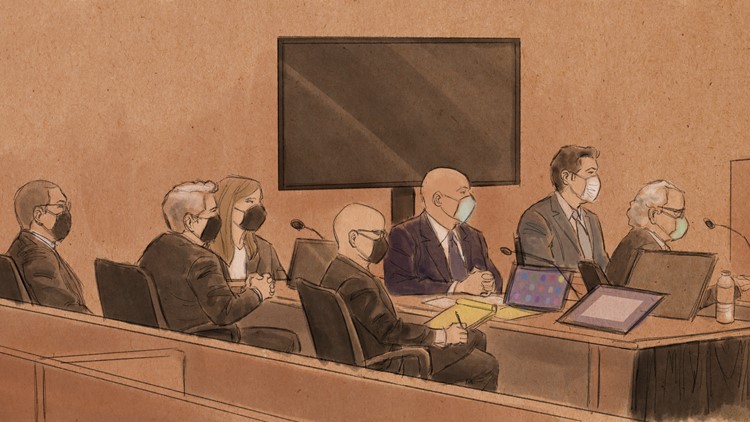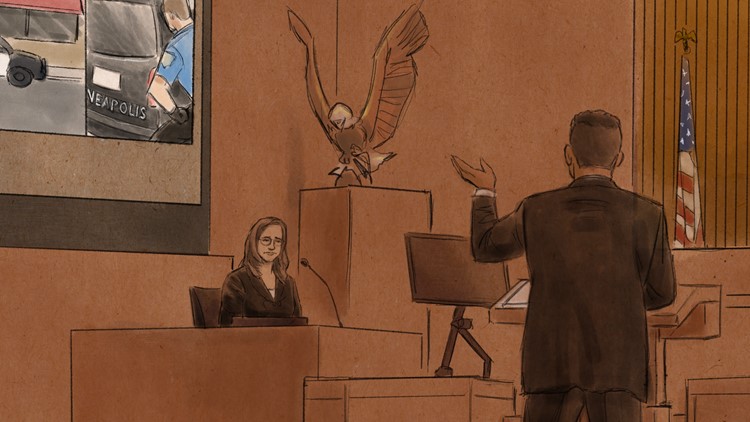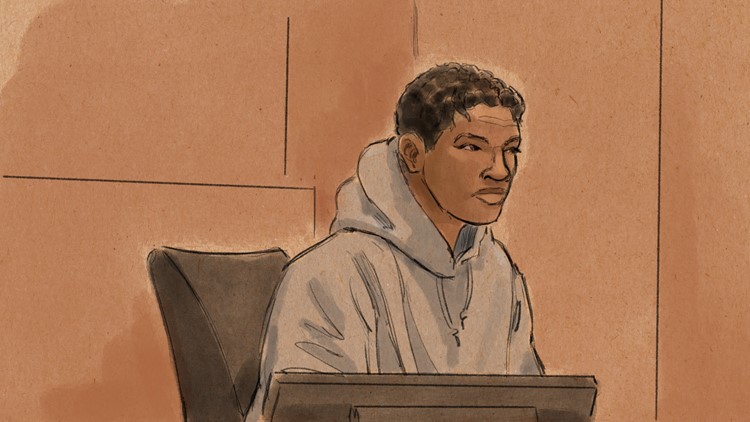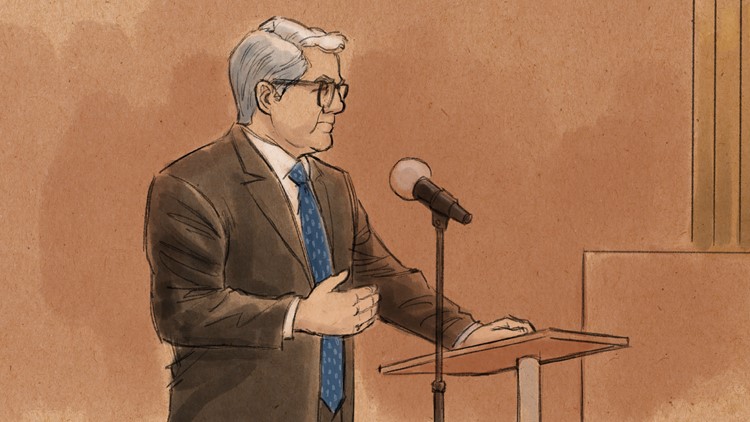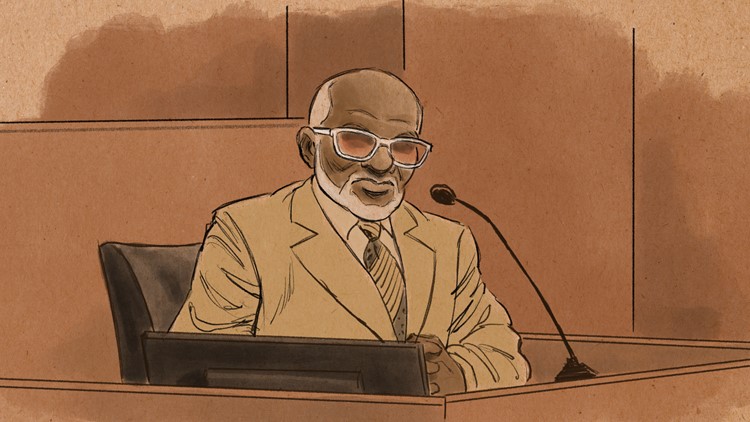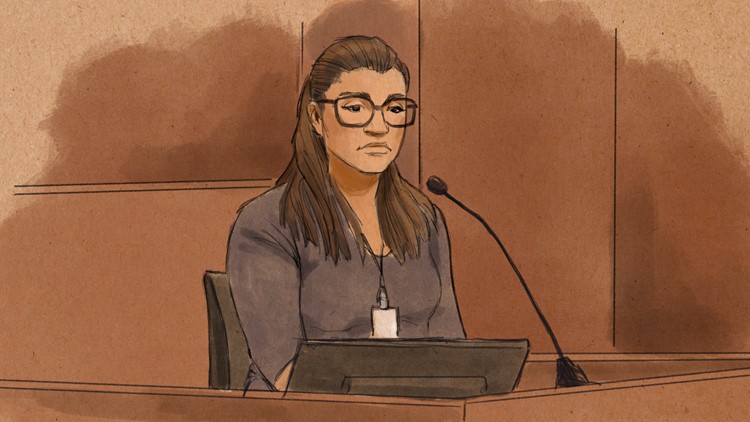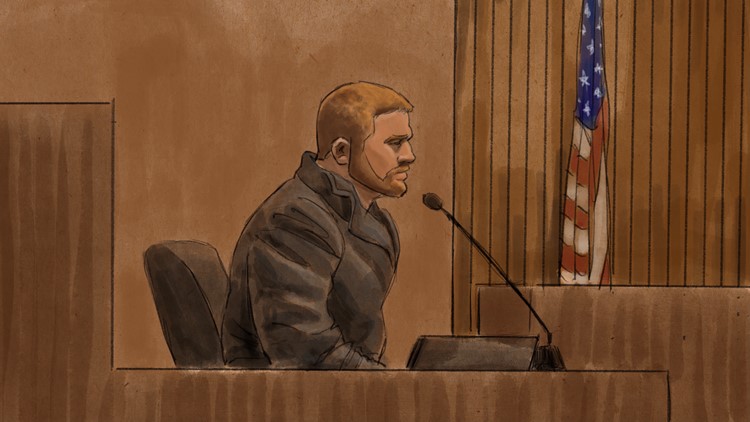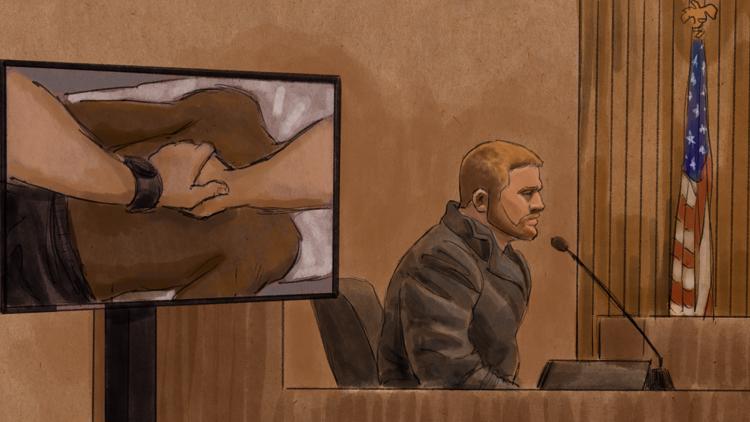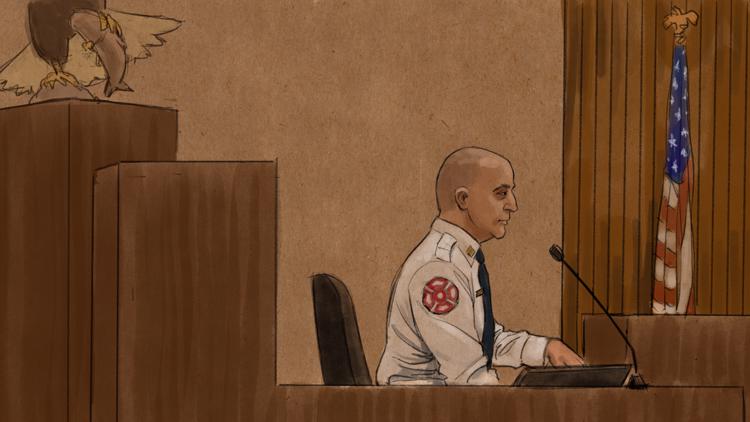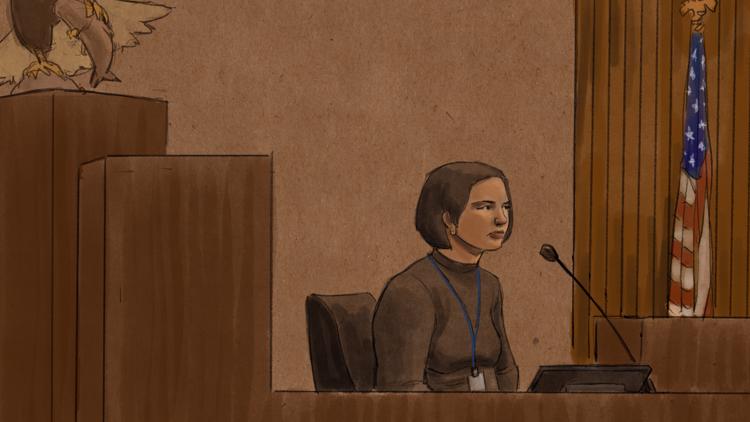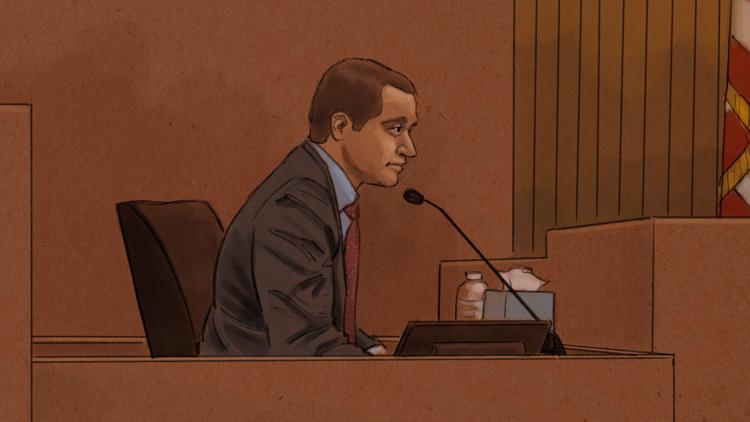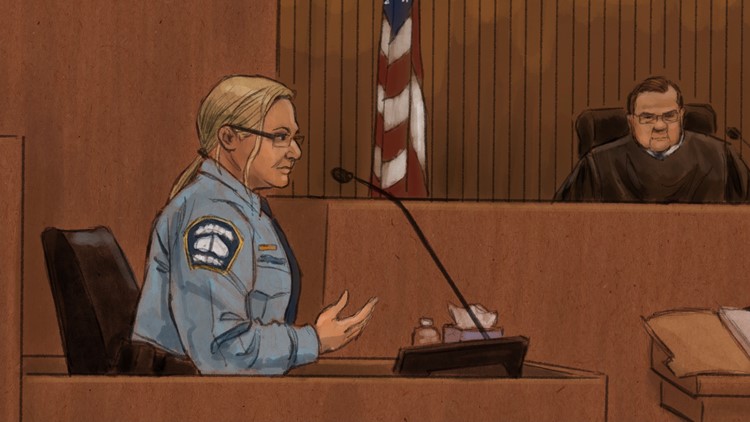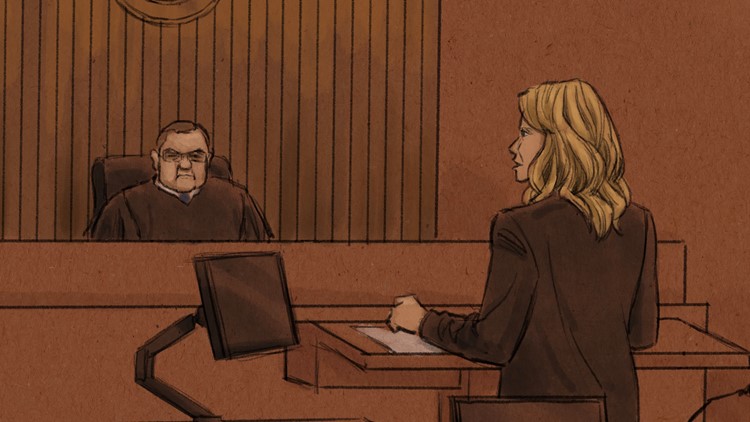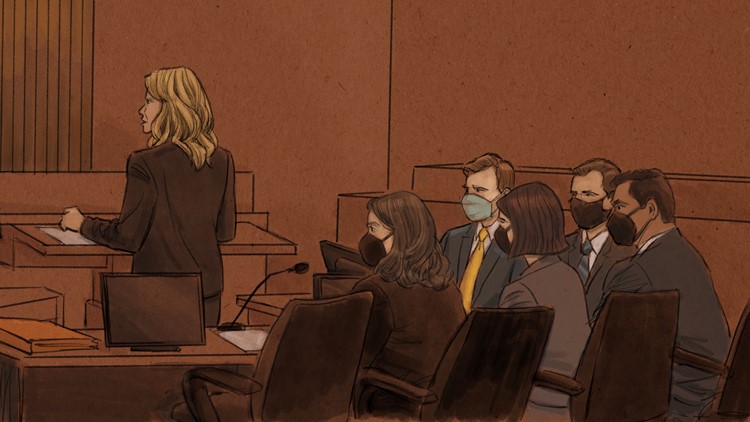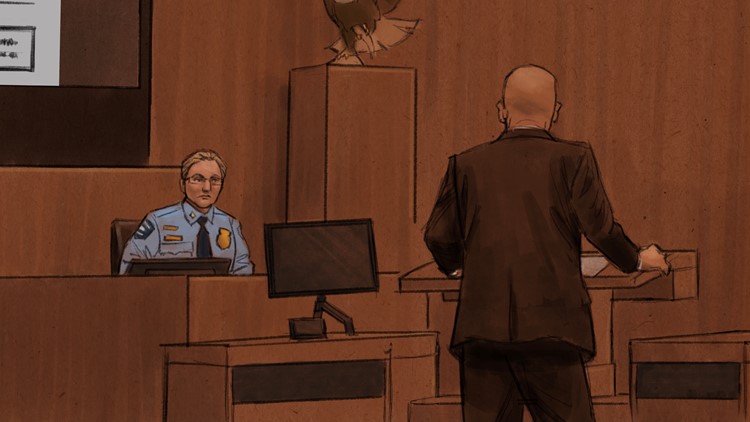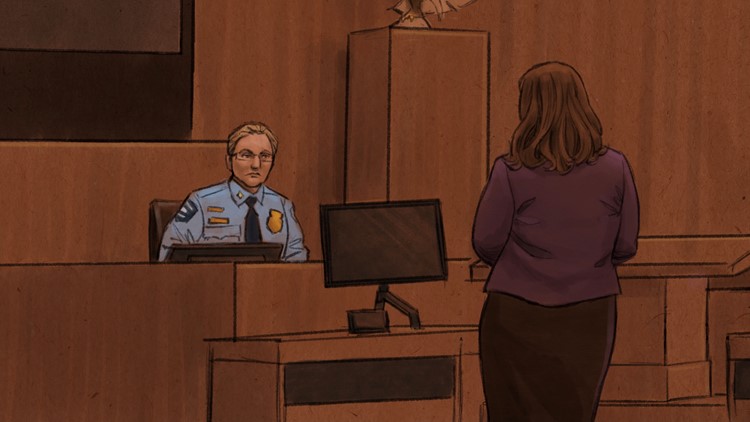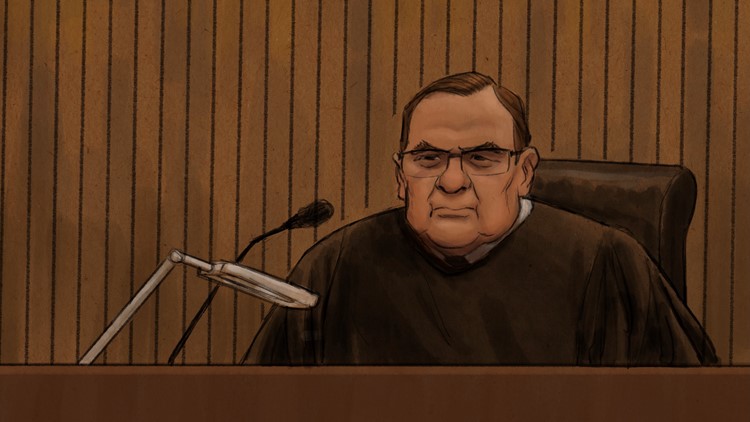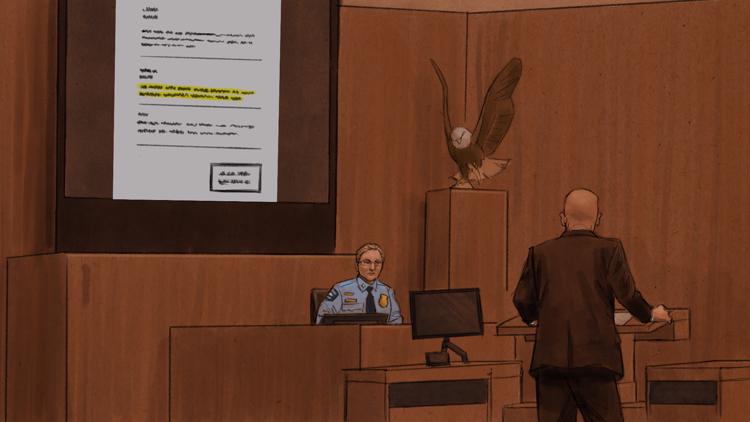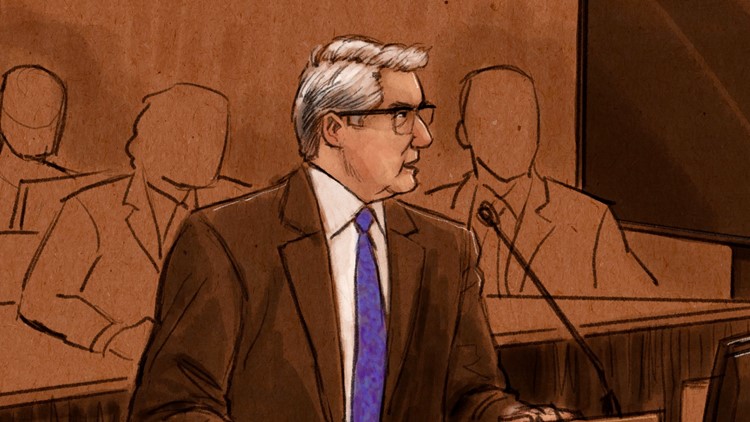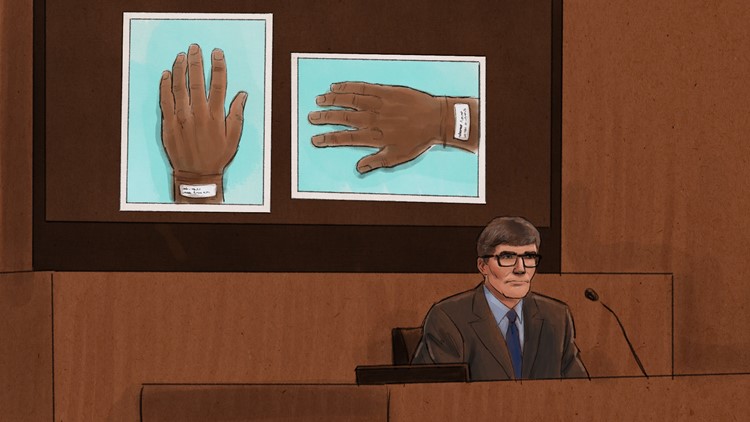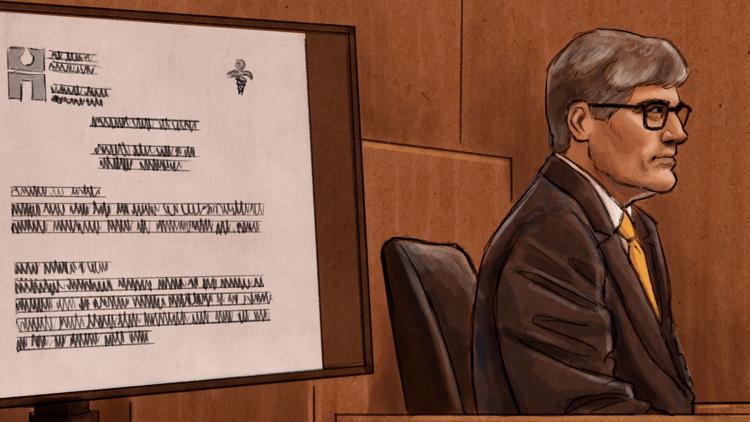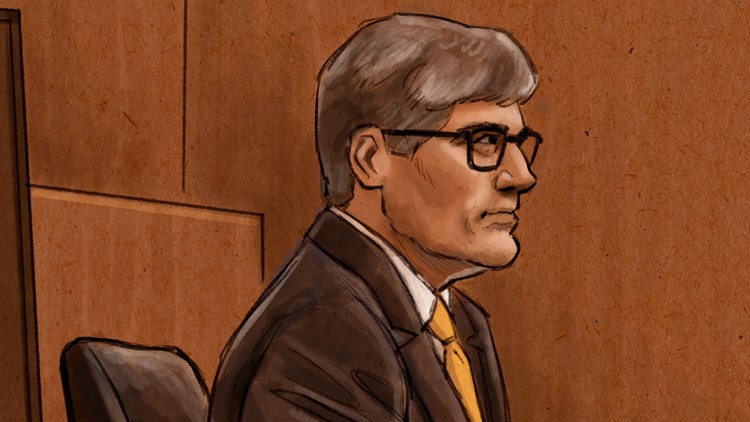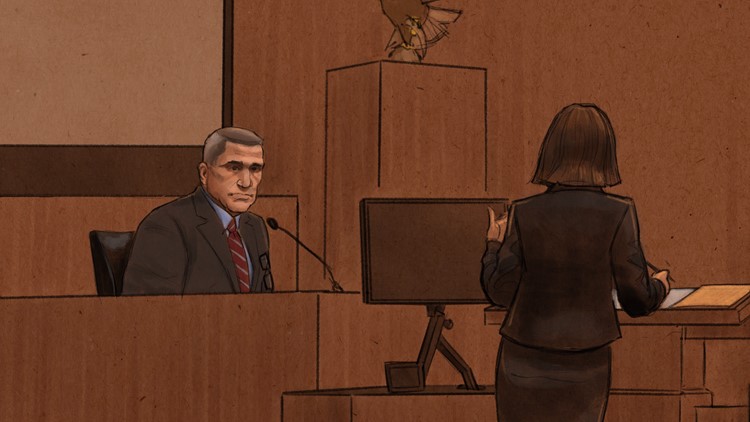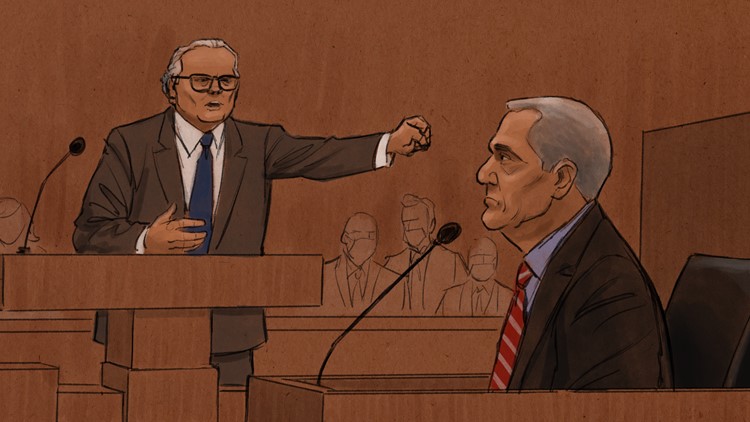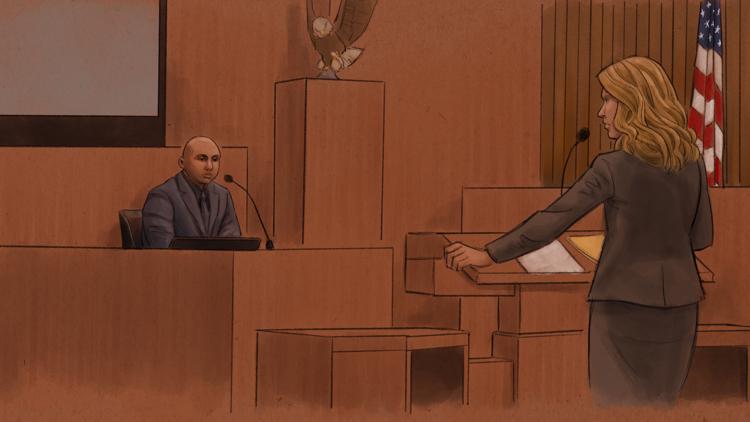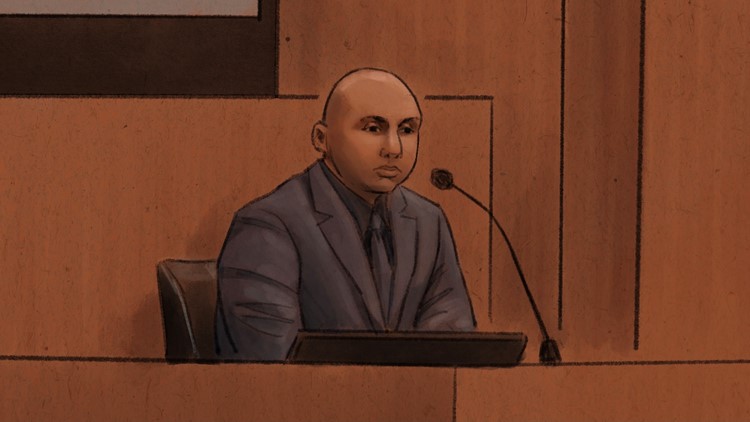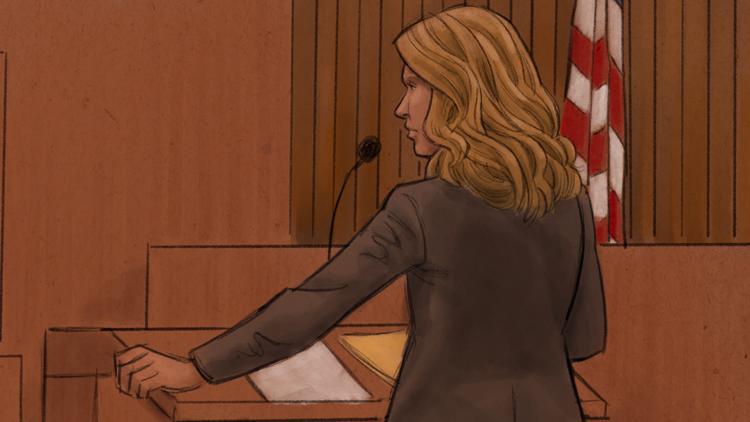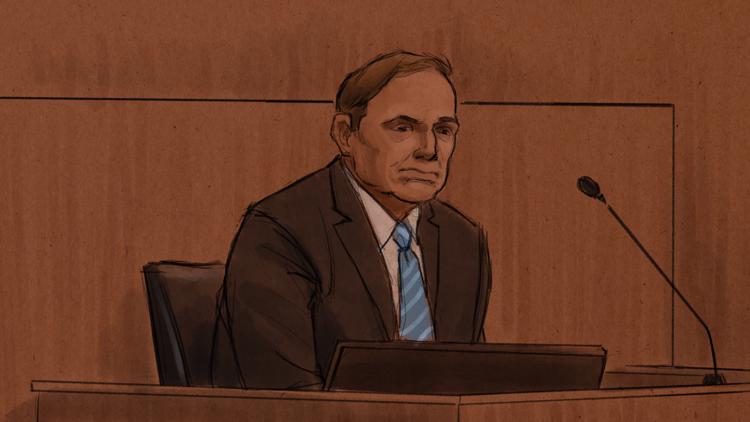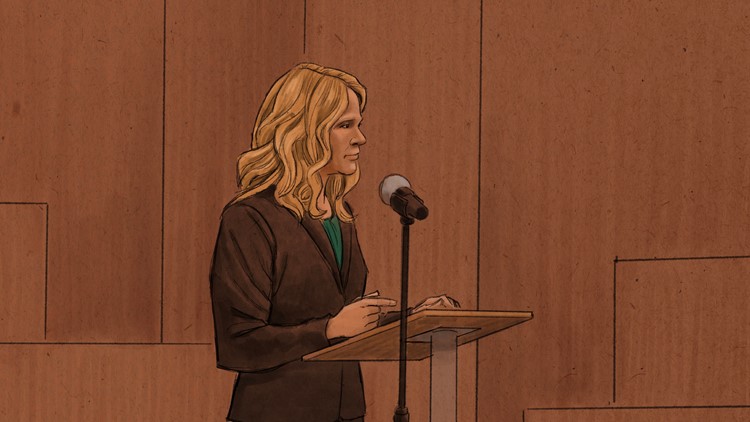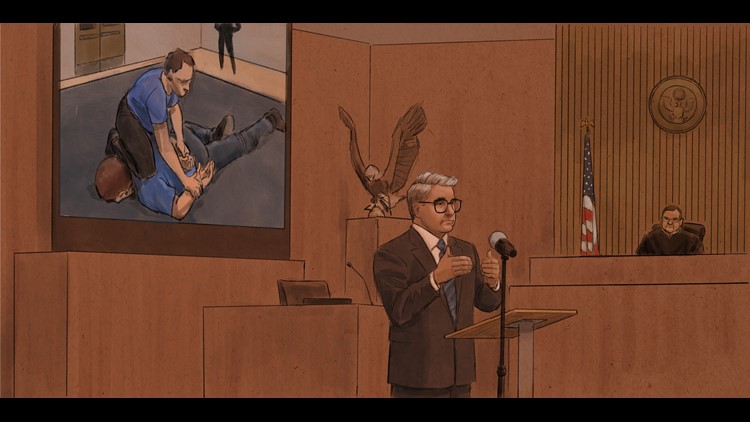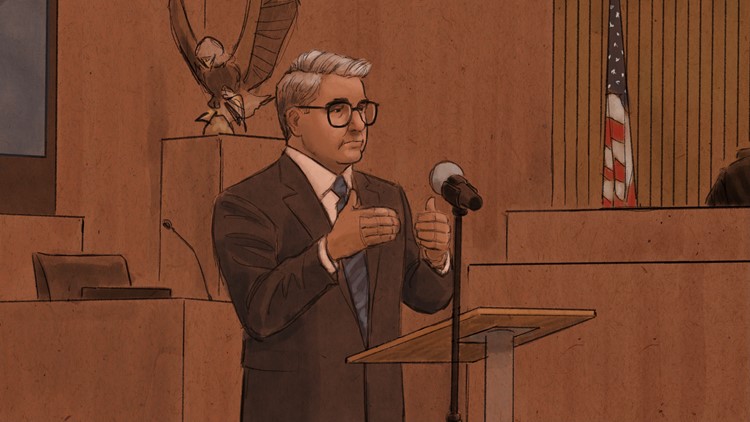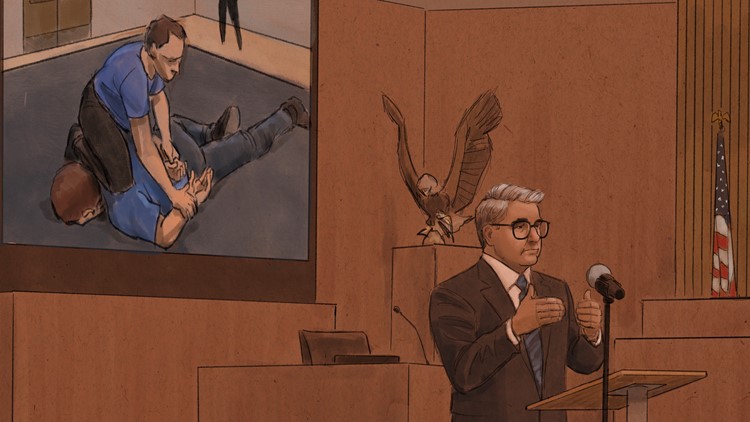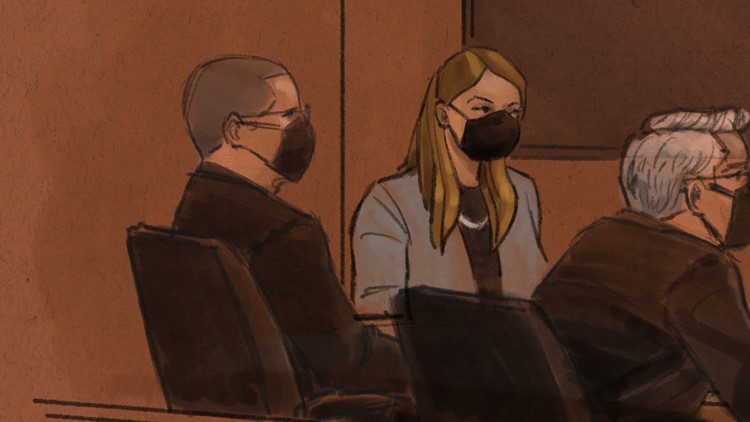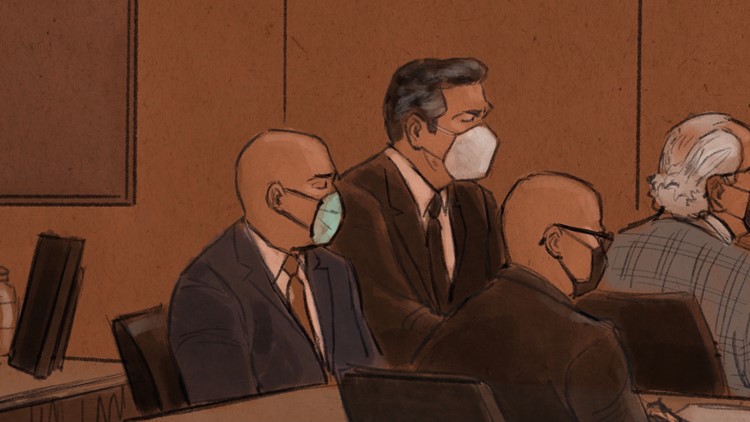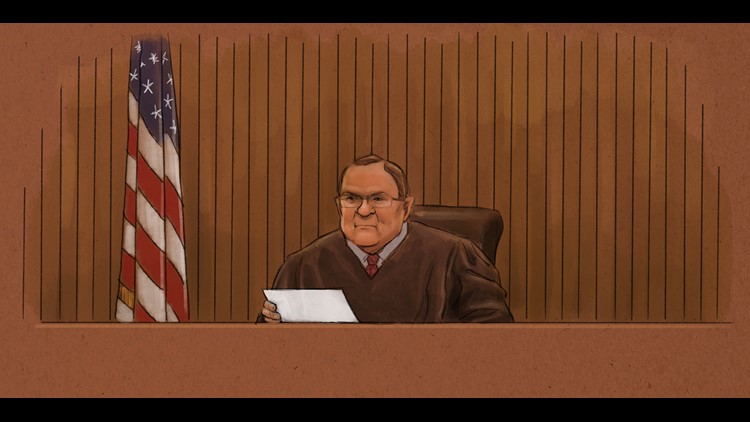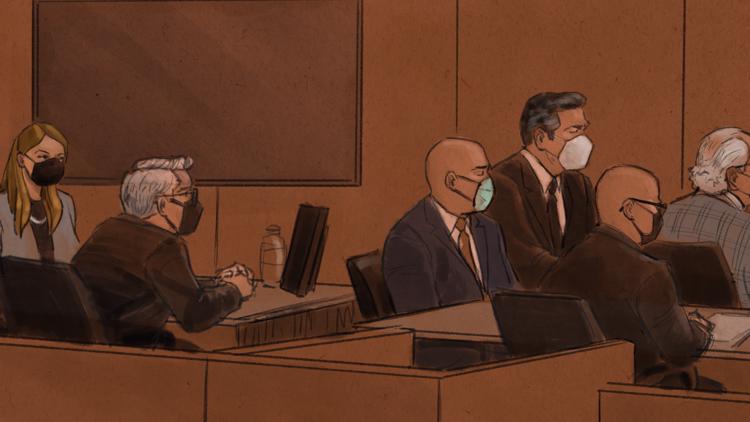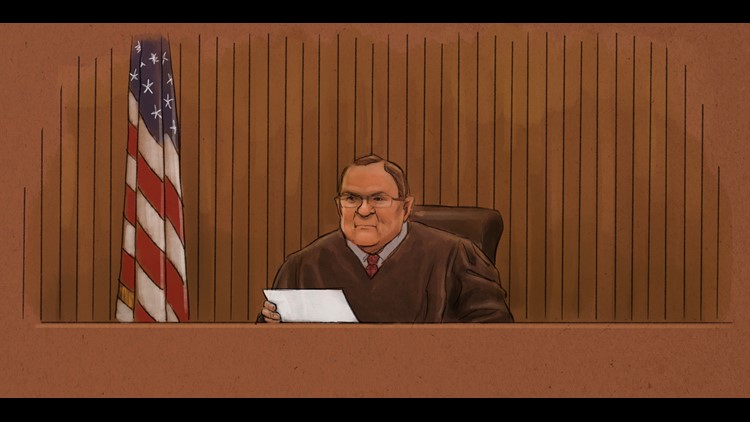ST PAUL, Minn. —
- Trial resumes after multi-day delay for positive COVID-19 test
- Prosecution calls Dr. David Systrom to testify about Floyd's death
- Dept. of Corrections safety trainer doubles down on safety techniques taught to officers
- Hennepin County Medical Examiner testified about George Floyd's cause of death
Court resumed on Monday morning in the federal trial of three former Minneapolis police officers following a multi-day delay after one of the defendants tested positive for COVID-19 on Feb. 2.
The judge didn't say which defendant tested positive, but Thomas Lane was noted as absent from the St. Paul courtroom Wednesday when Judge Paul Magnuson made his ruling.
Harvard pulmonologist Dr. David Systrom testified that George Floyd died from asphyxia — caused by Derek Chauvin's knee to his neck and from restricted breathing from being held in the prone position on his stomach while on hard asphalt.
The expert opinion given by Systrom matched that given by Dr. Martin Tobin during Derek Chauvin's murder trial last year.
However, in this trial, the other three officers aren't charged with murder. They are charged with depriving Floyd of his rights by failing to give medical aid and failing to intervene and stop Chauvin.
Dr. Systrom testified that it would have made a difference if the defendants did something. "This was an imminently reversible respiratory event right up to the moment he lost consciousness," he said.
A member of the prosecution asked Systrom, "What, in your opinion, was Mr. Floyd's chance of survival if he had been repositioned before losing consciousness?"
To which Dr. Systrom replied, "close to 100%."
When asked what Floyd's chances of survival would have been had he received CPR immediately after suffering his cardiac arrest, Systrom said, "they would have been doubled or tripled."
J. Alexander Kueng, Thou Tao and Thomas Lane are charged with violating George Floyd's civil rights on the day he was murdered in May 2020. Kueng and Tao face an additional charge for not stepping in to help Floyd while fellow officer Derek Chauvin knelt on his neck for more than nine minutes. Chauvin was convicted of murder and manslaughter in a state trial last year.
4:30 p.m.
During cross-examination, Kueng's defense attorney, Thomas Plunkett, attempted to illustrate to the jury that Dr. Systrom had more data and expertise to make his medical opinions than Kueng had at the time of George Floyd's death.
In response, Systrom replied that "Mr. Kueng respectfully had a front-row seat to what was going on."
12 p.m.
Court resumed Monday with pulmonologist Dr. David M. Systrom taking the stand to testify for the prosecution.
Systrom, a physician who specializes in the respiratory system, is on staff at Brigham and Women's Hospital in Boston, as well as serving as an assistant professor of medicine at Harvard Medical School. He did not testify in Derek Chauvin's state trial, as many of the witnesses so far did.
KARE 11's Lou Raguse said Systrom appears to have good credentials and is paid $600 per hour as an expert witness. He began Monday by breaking down a computer diagram explaining how humans breathe.
When asked by prosecutors, Systrom told jurors he believes George Floyd died from asphyxia, which is insufficient breathing resulting from two processes:
1. Obstruction to ventilation - by officer's knee on the neck
2. Insufficient breathing from being held in prone position on the asphalt
Dr. Systrom testified that Derek Chauvin's knee on Floyd's neck partially blocked his breathing, which is why he was able to say "I can't breathe." But then eventually Floyd lost consciousness, and the signs are consistent with cardiopulmonary arrest.
Prosecutors played a video clip where Floyd's leg pops up, and Systrom testified that it was an involuntary movement, and Lane pushed the leg back down.
The doctor told the court that Floyd was "in need of medical attention" before he lost consciousness, which Raguse said is important for the context of the charges in this case. Systrom said the officers could have removed pressure to upper airway caused by Chauvin's knee, and let Floyd take seated position.
"This was an imminently reversible respiratory event right up to the moment he lost consciousness," he opined.
Systrom also testified that CPR should have been done after Floyd lost consciousness, saying that doing so as soon as the suspect suffered cardiac arrest could have doubled or tripled his chance of survival.
"What, if any, medical care did you see given to Mr. Floyd before he was loaded into the ambulance?" prosecutors asked.
"I did not see any," the doctor responded.
"What in your opinion was Mr. Floyd's chance of survival if he had been repositioned before losing consciousness?," the prosecution followed up.
"Close to 100%," Systrom answered.
Hennepin County Medical Examiner Dr. Andrew Baker took the stand for cross-examination by the officers' defense teams.
Robert Paule, defense attorney for Thou Tao, had Baker acknowledge he initially told the Hennepin County Attorney's Office that there was no physical evidence of asphyxia in George Floyd's autopsy.
Baker told jurors he was harassed and received multiple threats after the initial press release about Floyd's death was published.
After Baker completed his testimony, prosecutors called their next witness when they returned, Chris Douglas from Hennepin County's Department of Community Corrections.
Douglas told the jury he's the safety trainer for all new employees, and gives corrections officers "refreshers" throughout the year. He said he teaches officers to roll subjects to the side recovery position to help them breathe better.
RELATED: Day 7: Hennepin Co. Medical Examiner, Dept. of Corrections safety trainer testify in federal trial

